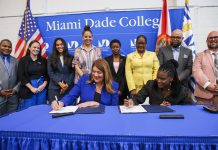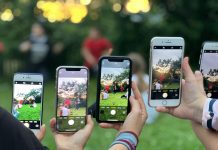|
Getting your Trinity Audio player ready...
|
Nine years ago, I wrote an opinion piece that was published in the Miami Herald and revealed that I was the parent of an autistic child and that she, Isabela, was the reason that I ran for a position on the Miami-Dade County School Board. Soon after my son Sebastian was also diagnosed in the autism spectrum.
Most people think that hardest part of this journey is receiving the autism diagnosis and realizing that the life you planned for the bundle of joy you brought home is no longer within your reach. But accepting the limitations of neurodivergence is nothing compared to the agony you feel when you realize that the child you have dedicated your life to protecting is becoming an adult, will outlive you and needs to become more independent in order to survive in a world without you.
As any parent of a child with a disability will tell you, we take a deep breath and take it one day at a time. Surviving and then enjoying one day at a time allows us to celebrate achievements that parents of “normal” children take for granted but thoughts of the future keep us up at night. As our children transition from adolescence to adults, the one day at a time mantra is no longer enough as we face the extremely limited options for our children. You see, when our children turn twenty-two, they can no longer attend public schools and only a handful of them can attend programs and even fewer can aim to be employed and thus claim a place in the workforce.
During this pandemic we have all unknowing walked in the shoes of neurodivergent adults. Much like them, we were sent home with little details and told to wait until things got better. We lost the interactions and routines that provided us comfort and faced the daily anxiety of not knowing what awaits us. We were all stripped of the future we planned and forced to live one day at a time.
Today as we navigate re-opening, safety protocols and the challenge of restructuring our economy while keeping our loved ones safe, I ask that you consider that for neurodivergent adults this #quarantinelife is not a phase but sadly their only future post twenty-two years of age when they can no longer attend public schools.
In these difficult times, as we rethink employment, training, working from home and safety protocols, please include people with disabilities and provide their advocates a seat at the table. Neurodivergence is a disability but like all people that have disabilities our children also have many abilities, the greatest of which is a desire to be a contributing part of our community. So, when as a community, we sculpt our post quarantine lives and economy do not leave adults with disabilities at home.
Raquel Regalado is a former school board member, an attorney and the parent of two teenagers in the autism spectrum.







Comments are closed.